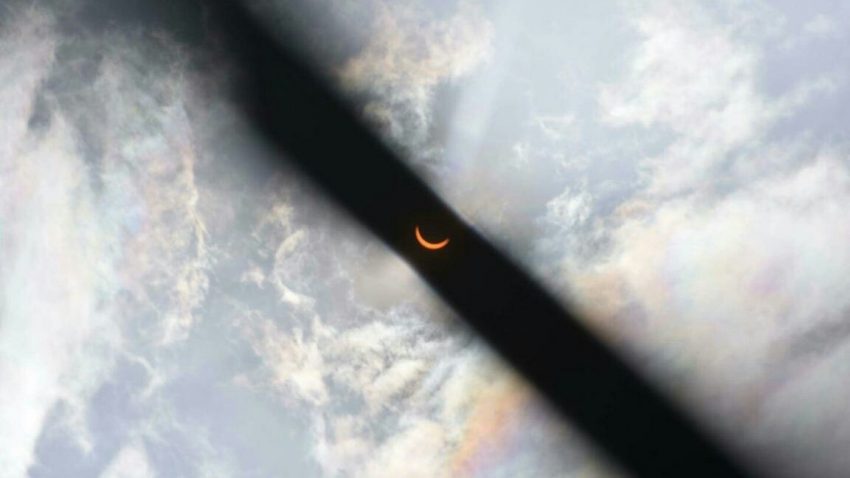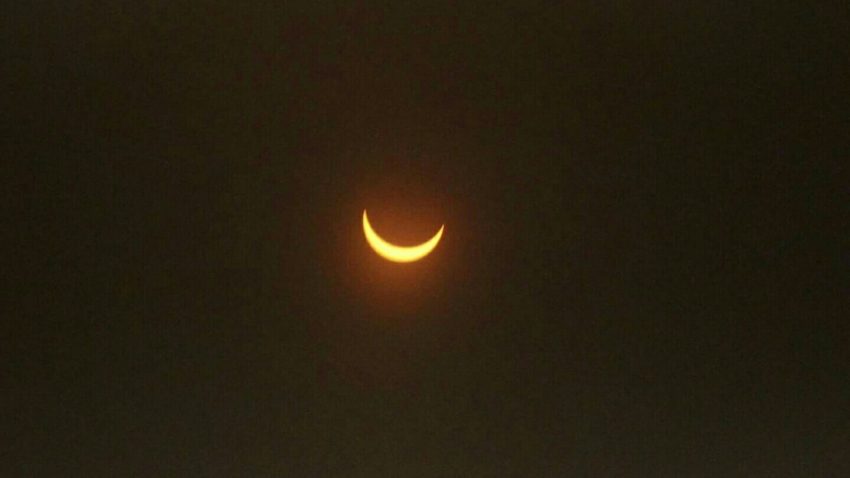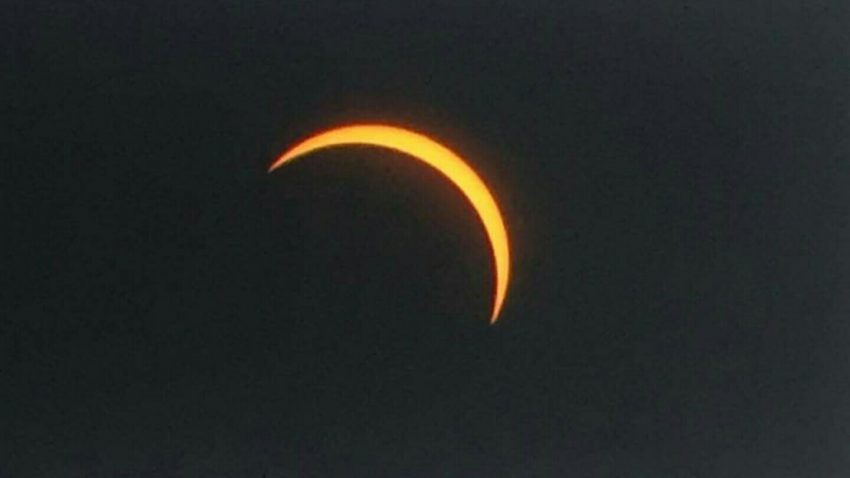By: Lenaia Powell
An event such as the solar eclipse demands attention from all over the world, even if it’s only visible in one country. On August 21st, The United States was that lucky country. By 3:50 p.m., Florida was able to see about 85% coverage, the peak of the eclipse in this area. I got the chance to view it with a pair of special glasses. For those who didn’t get to view it, it looked like a crescent moon, but instead of white it was a bright yellow crescent. The glasses blocked out all other light, so if you weren’t looking at the sun all you could see was black.
-(Jacksonville)
“Some states will see a partial eclipse, but we’re one of the states that will actually see the full eclipse, so it all depends on your position on Earth.” explains Mr. Talbert, a chemistry teacher at Apopka. The science teachers interviewed both had interesting things to say about the science behind an eclipse and what causes them to occur.
“So that is just from, like, magnetic rotational pull, so from there the moon then alines with the sun. The reason that it’s damaging for humans is that, when the sun comes up, your iris can naturally contract to its full potential when the sun is not being blocked by the moon. But because when the moon is blocking the sun, our eyes naturally don’t want to contract to their full potential, so it exposes our retina, and that’s why it can cause damage,” explains Ms. Gruman, an AP Biology teacher.
With this rare occasion and its dangers, Orange County granted an excused absence to students who chose to stay home while the eclipse was happening. However, some teachers were less than pleased at this decision.
“It’s a stretch. I understand that some of it just goes down to parent concern, which they have the right to do that, obviously. Like I’m concerned about my animals, but for them [students] I feel like there’s a conscious thing, you have a conscious thing to not look directly at the sun.” says Ms. Gruman. There were other teachers that weren’t interviewed that were definitely disappointed by the poor attendance, such as Mrs. Shafer, who experienced over half of her class missing while there are preparations that need to be done for upcoming performances.
Students, as well as teachers, also thought that there was a high chance of kids looking up at the eclipse, despite the numerous warnings given by Mr. Arnold.
“Yeah, I think a lot of people are gonna get their eyes hurt a lot, and I don’t think that’s a safe thing. I feel like there should be more than just glasses being able to be used,” voices Taina Johnson, sophomore, in response to what concerns she has for the phenomenon.
“Yes! They’re [students] gonna look! It’s gonna happen! The interesting thing is, is that if you look and you actually get blinded, you won’t know immediately, because there’s no pain receptors in your eye,” says Mr. Talbert, also voicing his concerns.
In addition to glasses, multiple people found other methods of viewing the eclipse in a less risky way.
“I did make a box for it with my family, and I did view it, but it was opposite of viewing the sun. It was looking downwards into the box to see the solar eclipse.” says Gregory Hemming, junior.
There was another device made that was similar in the shadow aspect, but functioned slightly different.
“So you hold it up, it’s almost like binoculars, and you hold it up and you can see the shadow of the solar eclipse being projected on a white sheet of paper that’s inside the box,” said Gruman.
Following the solar eclipse, there was even more doubt about the validity of the excused absences.
“I mean, you can see pictures all the time of an eclipse, so yes and no, I didn’t think students didn’t have to be at school that day,” says Talbert.
-(Orlando)
However, there was an account of eye damage, so there was obviously good reason for the precautions taken.
“My cousin did actually look into it and in his right eye–it kind of burnt out a little bit,” Gregory confessed.
In addition to the moon covering the sun, another interesting aspect was the darkness of the day. Unfortunately, because it was previously overcast, that difference was not very noticeable, as Ms. Gruman pointed out.
“I think it was kind of disappointing in Florida because we got overcast and it started downpouring, so I don’t think we really noticed that much of a change just because–was the change due to the solar eclipse, or was it due to us having our torrential downpours that we’re so used to? So I was a little disappointed in that, I couldn’t really tell a difference.”
Even though the solar eclipse was a highly anticipated event, the overall conditions of the weather and our position in the country led to a slightly disappointing scene. Not only was it less memorable than many would have liked it to be, there were some instances where people ended up hurt because of it. With the excitement, however, there was some payoff in the fact that America gets bragging rights for conveniently being in the right spot to see such a rare phenomenon.
-(Colorado)



